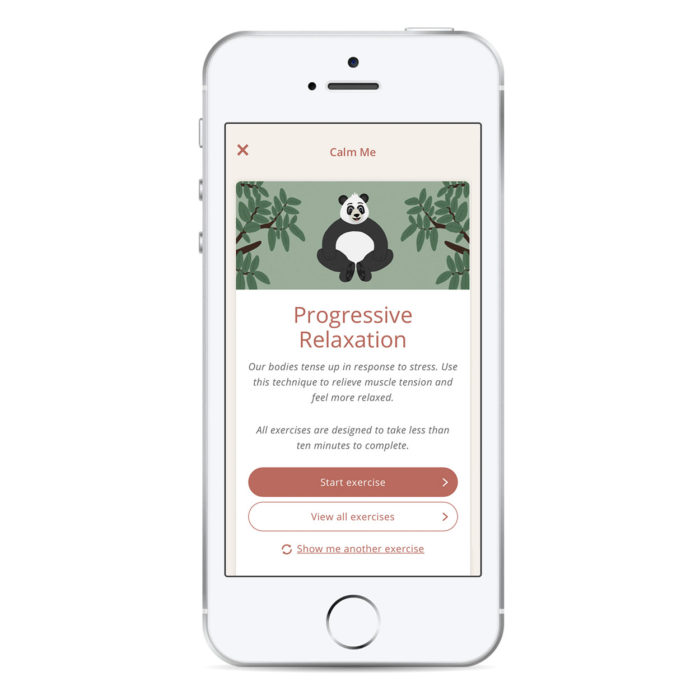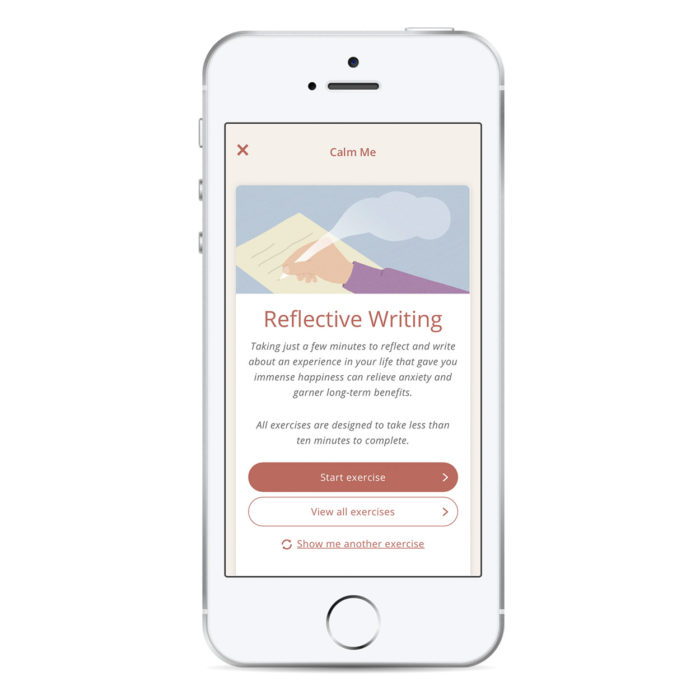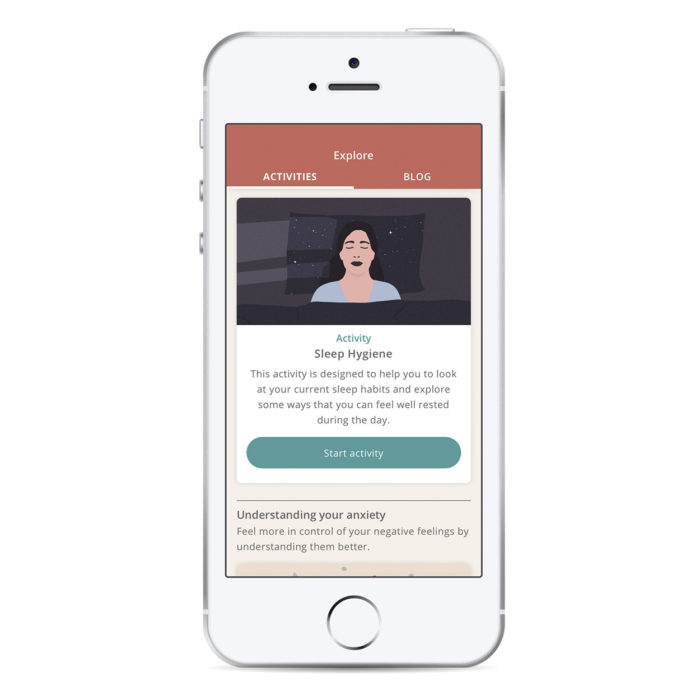▶ Sleep Hacks: 25 Tips For Better Sleep
Sleep problems are common and can cause us a lot of stress. These effective techniques can help you improve your sleep quality.
We all struggle with our sleep sometimes. We may have trouble falling asleep due to thoughts racing through our minds. We might wake up earlier than we would like to and feel tired during the day. We may even struggle with nightmares or panic attacks.
While it is common to experience this every once in a while, we want to make sure it doesn’t happen too often. This is because frequent sleep disturbance can have negative effects on both our mental and physical wellbeing. It can lead to increased anxiety and worsening mood, as well as various physical complaints, like headaches and abdominal discomfort. Sleep is also vital for maintaining a strong immune system and can help combat obesity.
For these reasons, it is important that we take good care of ourselves and make sure our minds and bodies can rest and regenerate. As part of this journey, we recommend discussing your sleep problems with your doctor who will also be able to rule out any physical causes that may be contributing to the issue.
In this article, we bring you a number of strategies that can help improve your sleep. They are all based on cognitive-behavioral therapy (CBT), a science-backed intervention for overcoming insomnia.
We recommend you pick out just a few of these tips that seem most helpful to you.
Try making a few small changes at a time and track how they affect your sleep. This will help your progress because you won’t be overwhelmed.
You may even find it helpful to have an accountability buddy – a friend or a family member with whom you can share your progress. They can keep you motivated along the way.
Without further ado, here are our 25 tips for better sleep!
In the morning
1. Get out of bed as soon as you wake up
When we start our days by drifting in and out of sleep, it can disrupt our biological rhythm and leave us feeling exhausted. If you struggle with hitting the snooze button, there are several things that can help:
- Put your phone away from your bed so that you have to get up to turn off the alarm.
- Try alarm apps that make you do challenges, like doing math problems or taking a photo.
- Drink a glass of water after your alarm goes off – this can help wake you up.
- Make commitments for the morning, e.g. an exercise class or a phone call with a friend.
2. Expose yourself to daylight
Our energy levels are guided by an inner clock that releases the hormone melatonin. This clock makes us feel awake when we are exposed to light and it helps us fall asleep when it’s dark.
To stimulate your body clock, open the curtains, take a walk outside or use a bright light lamp as soon as you wake up.
During the day
3. Keep a sleep diary
A good way to start improving your sleep can be to track your sleep quality and quantity for a week. This can help you realize what factors get in the way the most and where you could make changes. It doesn’t have to be complicated, you could just make a simple note such as:
“Last night I couldn’t fall asleep for 2 hours. I kept thinking about my stressful work project and I was disturbed by noise coming from the street outside.”
4. Restrict your bed mostly to sleep
We often use our beds for activities like watching TV, checking social media or working on our laptops. This can be confusing for the brain, which forms automatic associations between our environment and how we feel.
When we associate our beds both with sleep and watching exciting TV shows, the brain doesn’t know if it should be sleepy or awake.
If we mostly use our beds just for sleep, we will start to get sleepy automatically as soon as we get into bed at night.
5. Limit your naps
When we doze off during the day, it can become harder to fall asleep at night. If you really need to nap, try to limit it to 20 minutes so that you don’t fall into deep sleep.
If you feel so tired that it’s impossible to resist napping, discuss it with your doctor. There might be adjustments you could make to your diet or medications to increase your energy.
6. Exercise, but not too close to bedtime
Exercise can energize us during the day and help us feel sleepier at night. That’s a win-win!
Of course, many of us don’t particularly enjoy exercise. If that’s the case for you, try exploring a new activity you haven’t done before. Perhaps dancing, pilates or volleyball could be the right fit for you? Going to a group class or exercising with a friend can make it much more fun.
Whichever activity you choose, try not to exercise within 2 hours of your bedtime. This could make you feel more awake and actually make it harder to fall asleep.
7. Be mindful of caffeine
Consuming caffeine 6-8 hours before bedtime may disrupt your sleep quality and quantity. This not only includes coffee and tea, but also some types of soft drinks and, sadly, chocolate! Even some medications may contain caffeine, which you might want to check with your pharmacist.
In the evening
8. Try to stick to a regular routine
I know, you’ve probably heard this one before! But it’s true – going to bed and getting up at similar times each day allows our bodies to establish a consistent rhythm. This will make it much easier to fall asleep quickly and to feel energized in the morning.
Often we struggle with our routines because we underestimate how much time our activities require.
It can be helpful to measure how long it takes you to get ready for bed and how much time you spend getting yourself ready in the morning. Once you know how much time you need, try setting a phone reminder for when to start getting ready for bed, so that you can get 7-9 hours of sleep and still have a stress-free morning.
Importantly, try to stick to this routine even at the weekends! This can be hard, but your brain will thank you in the long run.
9. Reduce alcohol and nicotine at bedtime
Even though these substances can relax us at first, they tend to disrupt the quality of our sleep and leave us feeling drowsy in the morning.
10. Avoid heavy and spicy dinners
Going to bed too full can be uncomfortable and keep us awake for longer than we’d like. Be mindful of your portion sizes in the evenings and experiment with different dinner times.
On a similar note, consider how much you drink at bedtime. Getting up several times to go to the bathroom can disrupt your sleep too.
11. Make sure your bed is comfortable
Consider upgrading your pillow, duvet or mattress to achieve maximum coziness!
12. Unwind and destress
Spend time doing something relaxing before bed, like having a hot shower or a candle-lit bath. Listening to calming music or reading a book can also help you wind down. You may even do some light stretching or ask your partner for a massage!
13. Try a relaxation technique
These are special exercises developed by psychologists designed to reduce anxiety and tension.
One popular method is progressive relaxation, which you can find in the Mind Ease app, together with other calming exercises like mindfulness, guided imagery or deep breathing.

14. Avoid stressful stimuli in the evening
If there are specific things that can increase your anxiety, like reading the news or scrolling through social media, try to avoid them in the lead up to bedtime.
You can even use apps that block your access to certain websites at designated times of the day – that way you don’t have to rely on your willpower alone!
15. Diffuse evening conflicts
Arguing with your partner or family members before bed can certainly affect your sleep.
Try asking your loved ones if you could postpone difficult conversations to a different time. If either of you feel upset, try leaving the situation to find something to distract and calm yourself down. Taking a walk or a hot shower can be very helpful for this.
You could even schedule a regular “appointment” in your calendar during which you both agree to discuss your feelings, and give each other feedback to try to resolve your problems. This way you can reduce conflicts happening at times when you are not able to productively resolve them.
16. Reduce your use of electronics before bedtime
Electronic devices, such as TVs, computers and smartphones emit blue light which can keep us awake. If it’s not possible to avoid your devices, you could try wearing blue light glasses or install blue light blocking apps on your devices.
17. Make preparations for the next day
Small practical steps like laying out your clothes or filling up a bottle of water can relax us at night and make our mornings easier.
18. Write down an evening reflection
Journaling can help us tie up any loose ends of the day and calm down before sleep.
You can write down anything that’s on your mind – a stress log of things that are making you anxious, a to-do list for the next day, or a list of things that you’re grateful for.
You can use the Reflective Writing exercise in the Mind Ease app to remind yourself of positive experiences from the past and improve your mood before bed.

At night
19. Reduce noise
Having a quiet environment can really help us to relax. You may find it useful to sleep with earplugs or use a machine that creates white noise, such as a fan.
20. Make your bedroom comfortably cool
Temperature is also known to affect our sleep quality. Make sure you don’t get too hot or too cold at night. You may also want to consider opening a window before sleeping to get some fresh air.
21. Keep away from bright lights
Darkness triggers the release of melatonin, which promotes sleepiness. Even small sources of light, like from a laptop charger, should be covered up at night to prevent disturbance. To achieve maximum darkness, you can use a sleep mask or black-out curtains.
22. If you can’t fall asleep after 20minutes, leave the bed
Just as we don’t want to associate our bed with exciting TV shows, we also don’t want to associate it with insomnia. If you find yourself having a sleepless night, leave the bed and do a relaxing activity instead. Perhaps you could read a book or do some light stretching.
Only return to bed when you feel very sleepy – wait for the yawning, head-bobbing and eye-closing signals to know that it’s time to return. This will help your brain associate the bed with falling asleep quickly.
At first, this might mean spending a lot of the night away from your bed. However, in the long run, it will help you achieve better habits for long, nourishing sleep.
23. Avoid clock-watching
If you can’t sleep, resist the temptation to check the time. You want to be asleep no matter what the time is, right? Checking the time often makes us more stressed!
24. Be kind to yourself
Try not to beat yourself up if you are struggling to sleep. It happens to all of us sometimes and being critical of ourselves will only make us more upset. This can lead to a vicious cycle, because the more tense we feel, the harder it is for our bodies to relax.
Try to say comforting things to yourself like “You are a good person even if you can’t sleep right now” or “Everything will be okay tomorrow”.
25. Reframe your negative thoughts
It is common to catastrophize about the effects that poor sleep may have on us the next day. We might think “If I don’t get 8 hours of sleep, I will have a terrible day at work tomorrow!”.
In reality, we can often manage the effects of a lack of sleep much better than we expect. And either way – coming up with negative scenarios will only make us worry and keep us awake for longer. Instead, try to relax by listening to calming music or a guided meditation – and keep reminding yourself that tomorrow is going to be okay!
We hope that some of these tips will be helpful to you on your journey to better sleep. Remember to try to remain patient – it can take a while to override old habits. Taking small steps and sharing your progress with a friend can significantly help you to stay on track.
If you find yourself struggling with other mental health problems, like depression or panic attacks, we recommend talking to your doctor or a therapist – you can learn how to find one here. This may be particularly helpful if your sleep is being interrupted by nightmares or other distressing thoughts or feelings.
Did you know you can learn more about sleep hygiene in the Mind Ease app?






